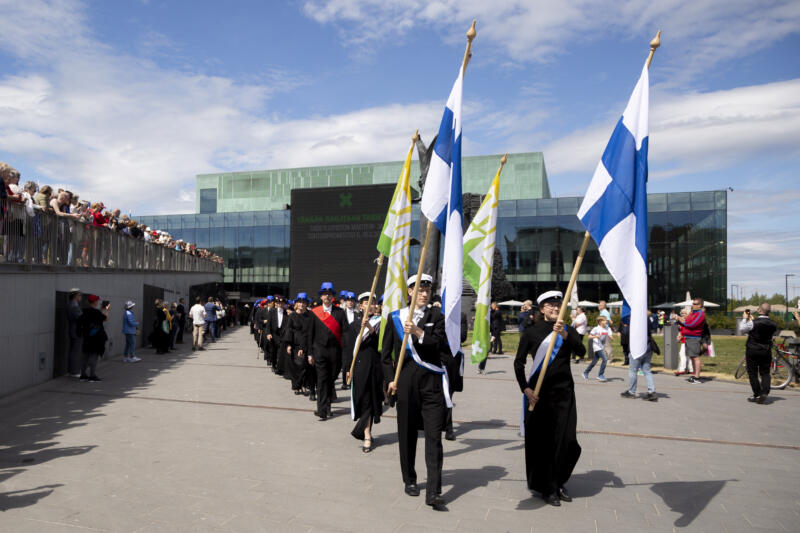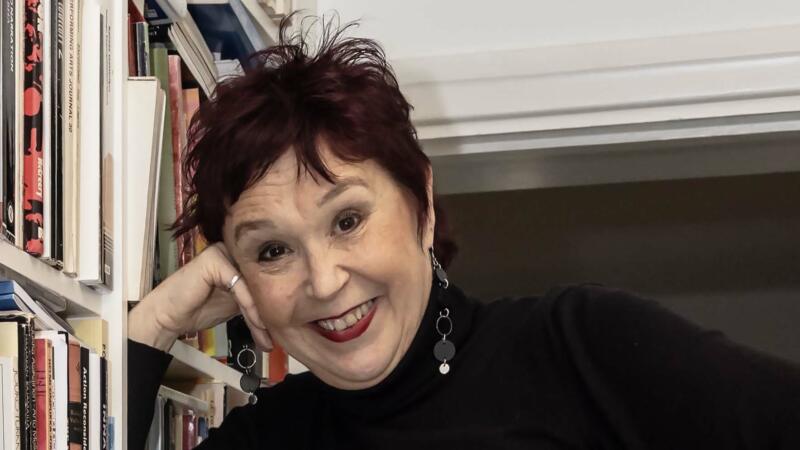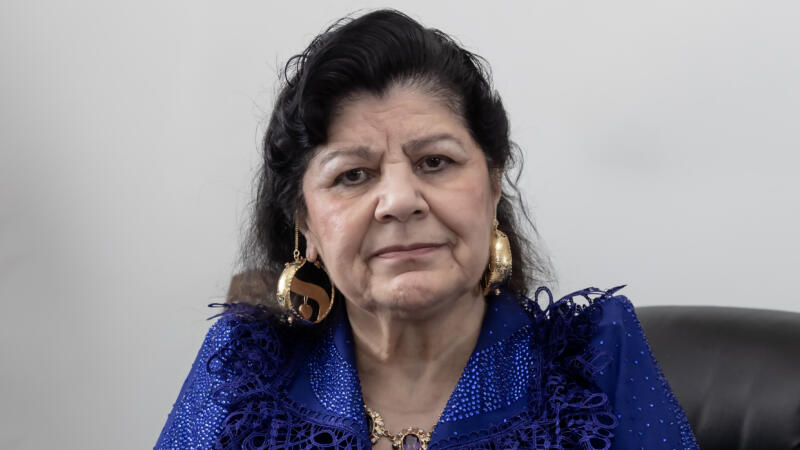Honorary doctor Heikki Lehtonen highlights the importance of art fitness
Heikki Lehtonen has renewed Uniarts Helsinki’s investment activities, personally collected major donations to the university and had a major impact also on the structures of higher education in the arts. He is one of the recipients of the university’s honorary doctorates.
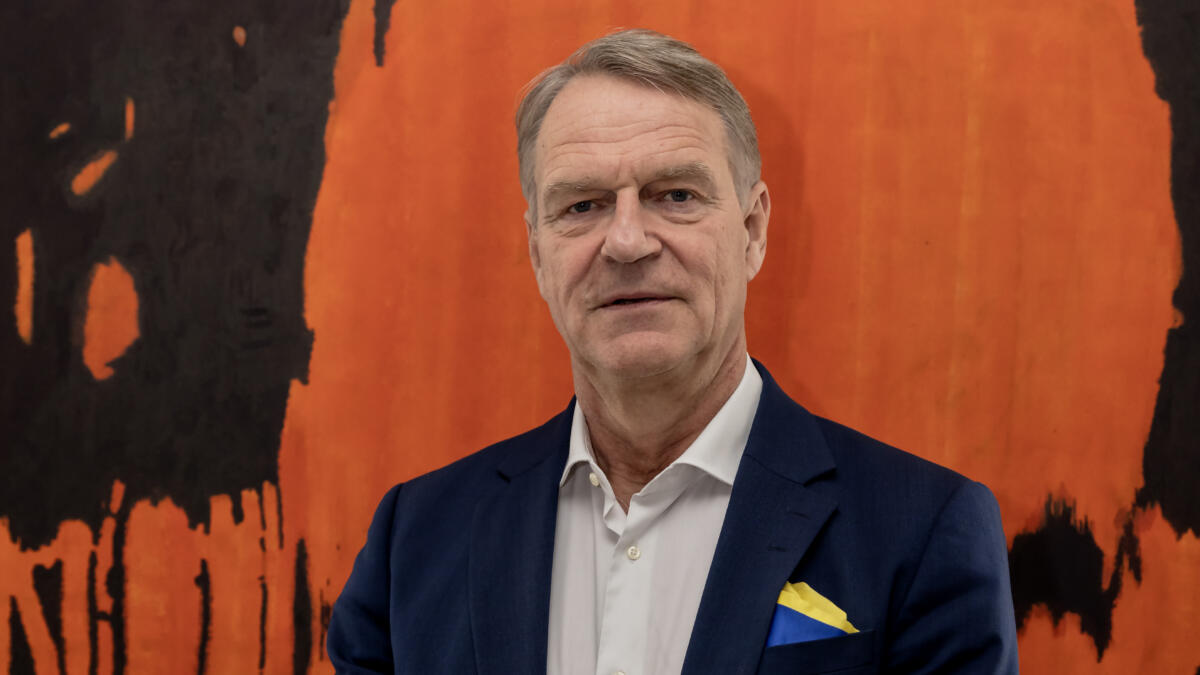
Through art, a person can make a long-lasting mark on the world.
“That alone often works as a motive to donate to art,” says Heikki Lehtonen.
Lehtonen is a CEO and an experienced board professional, who worked as the chair of the Uniarts Helsinki Board in 2018–2021. He continues to serve as the chair of the University of the Arts Helsinki Foundation and as a member of Uniarts Helsinki’s investment committee. In August, he will receive an honorary doctorate at Uniarts Helsinki.
As the chair of the University of the Arts Helsinki Foundation, Lehtonen has a very personal approach to fundraising, as he gets in contact and actively meets up with private individuals and foundation representatives.
“I don’t find the work taxing because it’s wonderful and meaningful getting to represent Uniarts Helsinki. I believe in the importance and relevance of this work,” Lehtonen says.
From competitive swimming to art fitness
When Lehtonen was young, he was not all that interested in art and found sports more appealing than culture.
“I was a competitive swimmer, and I could have over ten training sessions per week,” Lehtonen says.
Training paid off, as well: the young man later became a national team swimmer, achieving several Finnish championships in relay swimming and emerging as the Finnish champion in freestyle swimming in 1976.
Lehtonen never had his own artistic ambitions, but art in its various forms has had a strong presence in his life ever since his childhood surroundings.
“My grandpa, for example, was an avid collector of classical art and quite a gifted drawer himself. As for my grandma, she was a singer and singing teacher.”
Lehtonen began to receive a very personal introduction into fine arts after meeting her future wife in 1980.
“My wife is a graphic designer with a Master of Arts (Art and Design) degree. She has been an excellent instructor in introducing me to modern art, for example,” Lehtonen says.
Nowadays, Lehtonen aims to experience art on a regular basis, and he also tries to challenge his own perceptions of art itself. When talking about the topic, he uses an amusing term, taidekunto, meaning art fitness or art condition in English.
“We need to take care of our art fitness by branching out to artistic fields that aren’t so familiar to us. We need to make an effort and take time to experience art,” he says.
The most recent experience that built Lehtonen’s own art fitness was Innocence, Kaija Saariaho’s opera dealing with the traumas of a school shooting. Lehtonen finds the work a great example of how classical music and opera continue to evolve and change.
In fact, he says that he finds that one of the most important missions of art is to seek out even new forms of expressions, to open up new perspectives, to renew thinking and to feed creativity.
“At its best, art leads to very strong experiences. We just need to dare to seek out those experiences.”
Out of pure willingness to help
Lehtonen completed a Master of Science degree and began working for his family-owned company in the foundry business already in 1981. Suomivalimo later changed its name into Componenta, growing into an international exchange-listed company, where Lehtonen served as the CEO for 22 years.
When his time as the CEO came to an end in 2015, Lehtonen found himself in a new situation: he had time to spare in his schedule. At around the same time, Lehtonen’s friend had a birthday party where Karri Kaitue, the chair of the Uniarts Helsinki Board at the time, sat down at the same table with him.
Uniarts Helsinki was only taking its first steps back then, and Lehtonen found the merger of the three academies interesting. The men discussed the topic extensively over the course of the evening, and Kaitue finally presented Lehtonen with the invitation to come and visit Uniarts Helsinki on campus.
Lehtonen accepted the invitation and went and got to hear about the capitalisation campaign of the universities – and then offered his help.
“Uniarts Helsinki had considered aiming the campaign at businesses, but I suggested reaching out to foundations, instead. I had a lot of knowledge of foundations and knew that many foundations had written about supporting culture in their statutes.”
The idea proved to be a good one, and the campaign result was excellent. People on both sides got to know each other, and the work built trust in Uniarts Helsinki. Next year in 2017, Lehtonen was selected as the chair of the Uniarts Helsinki Board.
Speeding up the curriculum reform
The term of the newly appointed chair had not even officially begun when he and his board colleagues began to learn the ropes in their future work.
“The very first thing we did was meet with members of the Student Union Board and ask them what students at Uniarts Helsinki would change if they were handed all the possible power and authority.”
Students’ responses highlighted the silos that the academies had ended up in. The unity of the university was practically invisible in the everyday lives of students at the Academy of Fine Arts, Sibelius Academy and Theatre Academy, because despite the merger, the academies still had their own schedules and curricula. For example, a student at the Sibelius Academy was not able to choose courses that were organised at the Theatre Academy, and there were not many other interaction opportunities, either.
Lehtonen notes that studying at Uniarts Helsinki does not equal straightforward technical or theoretical training for a specific profession.
“When growing into an artist, I believe that it helps if you expose yourself to various forms of art and do things alongside people from various artistic fields and have the chance to complement your studies outside your actual discipline,” he says.
With Lehtonen as the chair, the Board began promoting a curriculum reform. Naturally, the project had its own challenges, but courses will be organised according to the new joint curriculum starting from autumn 2024.
“I’m really proud of how Uniarts Helsinki has developed in such a short period of time.”
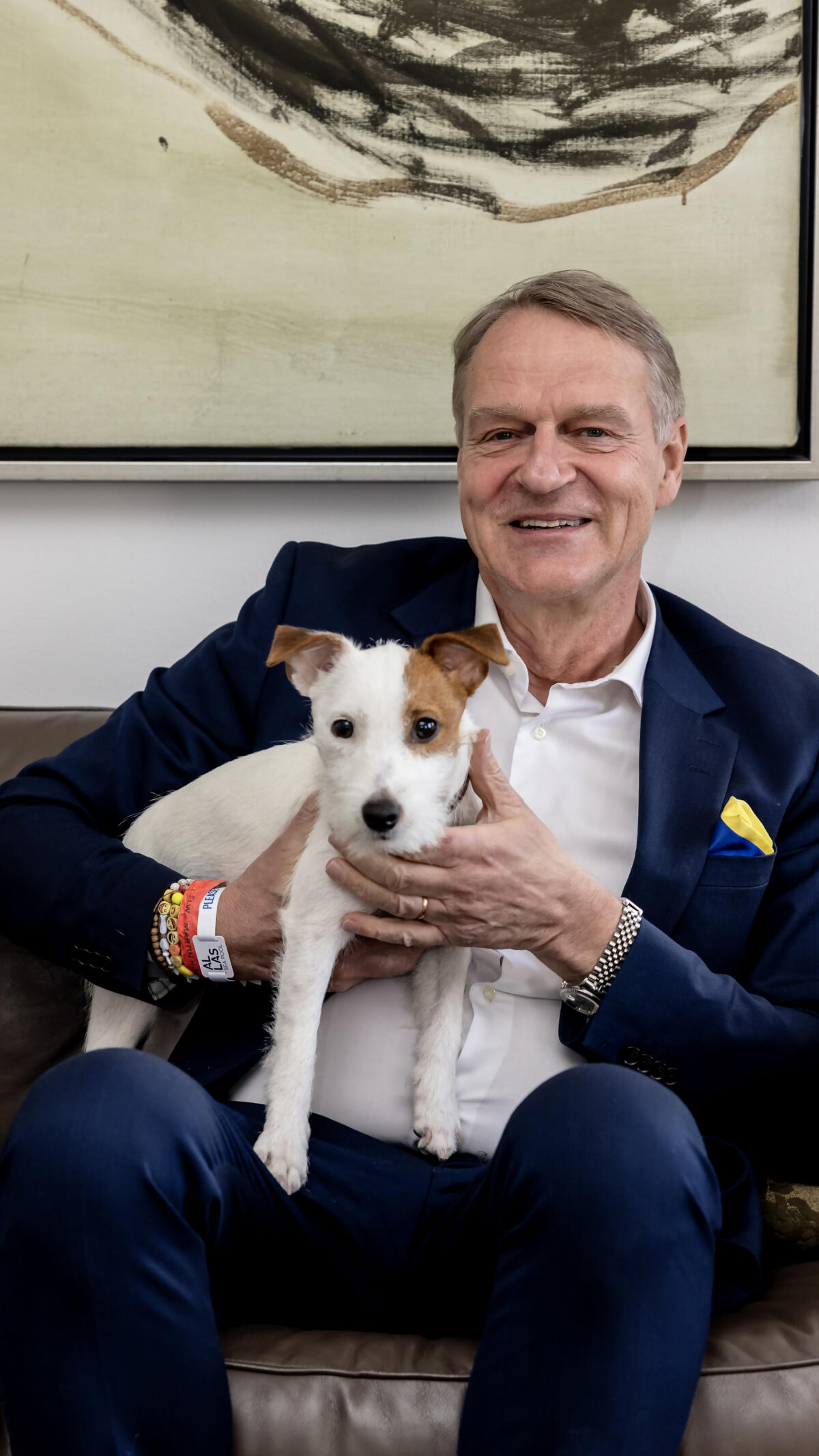
Introducing new masters
Another major change that Lehtonen has strongly contributed to is the setting up of the master’s and bachelor’s degree programmes in creative writing.
The degree programmes in creative writing were established as permanent options in Uniarts Helsinki’s study selection in 2024. Lehtonen says he finds the degree programme very important, because writing and storytelling are cross-cutting skills in the entire arts sector.
“I have collected a lot of capital for this degree programme, in particular. First, we were able to get Otava Publishing Company Ltd and its Book Foundation on board, so we got test the programme out and see the results.”
The degree programme was also sponsored by various private individuals. Lehtonen and other fundraisers also achieved good results in the Government’s matched funding campaign.
Matched funding means that the university receives governmental support in proportion to the donations it has collected – that means that the bigger the donated capital, the more financial support is provided.
Even though the majority of Uniarts Helsinki’s expenses are covered by public funding, the significance of donations is major. Donations and other funds accrued not only make it possible to launch new degree programmes but also to engage in international cooperation.
“I think that the culture of donating is definitely going in the right direction in Finland,” Lehtonen says.
Notable foundations have emerged in Finland, such as the Jane and Aatos Erkko Foundation and We Foundation, which have supported and will continue to support education and leisure activities in the arts.
Nowadays, private persons also make many direct donations, each with their own resources. Lehtonen has been particularly delighted by the increase in bequests.
“I believe that this is partially due to the persistent work that we have done. The people who make donations have noticed that this is an excellent way to give back to society and make a long-lasting, positive impact.”
Reformer of the university’s investment policy
Lehtonen’s term as the chair of the Uniarts Helsinki Board ended in 2022, but he is still active on Uniarts Helsinki’s investment committee, where he began as a member in 2018.
“Uniarts Helsinki’s investment policy had been very, very cautious, resulting in modest returns. We started benchmarking the way universities like Harvard and Stanford were doing things and then changed Uniarts Helsinki’s investment methods accordingly,” Lehtonen says.
The new investment policy increased the share of alternative and non-liquid investments, in particular. Non-liquid investments refer to investments in private equity funds, for example. The commitment to these is longer, but in principle, they lead to a better return than the stock and bond market.
“Now, the value of the investments has increased significantly, totalling nearly 100 million euros at the moment. The return on investments is important, because that alone can be used for developing Uniarts Helsinki – never the capital itself.”
The reform that was made in the investment policy was major, but the decision to make it was unanimous.
“Everyone ultimately understood that this was a necessary change to make.”
Wine and art
Currently, besides being a member of the University of the Arts Helsinki Foundation and the university’s investment committee, Lehtonen is also actively involved in the activities of Viinilehti Group, for example, serving as the CEO of the Viinilehti magazine and holding positions on the boards of various companies and foundations. He enjoys being active on various fronts and explores opportunities to combine his interests.
“The editorial team and I have thought about coming up with a concept that would combine wine and classical music, for example. That’s a project that’s still waiting to be carried out.”
Text: Elli Collan
Uniarts Helsinki conferment event, the ceremonial conclusion of university studies, will be held in Helsinki from 16 to 18 August 2024. The ceremony will feature the conferment of degrees on master’s graduates and doctors from the university’s academies. Additionally, honorary doctorates will be conferred on eight individuals who represent Finnish or international pioneers and influential figures in their fields and who have advocated for arts education or advanced the societal role and significance of the arts.
The honorary doctors have been selected by the boards of the Academy of Fine Arts, Sibelius Academy and Theatre Academy as well as the board of the University of the Arts Helsinki. Being conferred an honorary doctorate is the highest recognition bestowed by the university.
